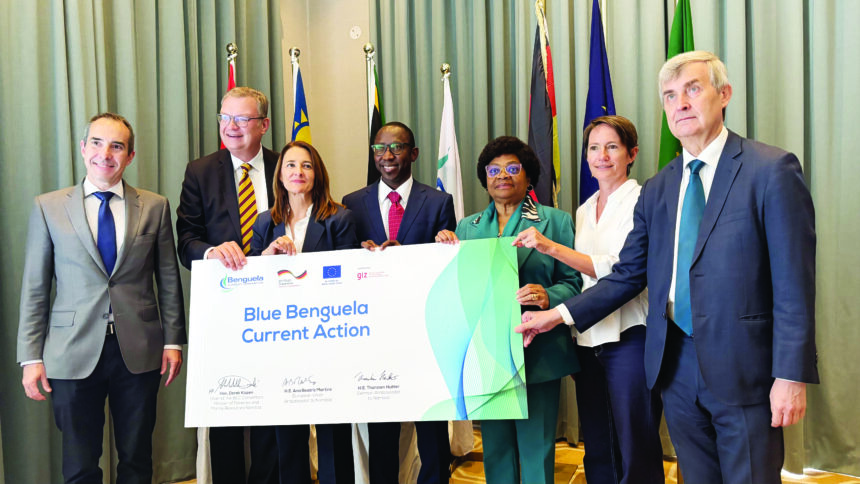Lahja Nashuuta
Germany has invested N$32 billion in the form of financial and technical support for collaborative projects in Namibia since the country’s independence. This funding consists of a combination of grants and preferential loans.
Thorsten Hutter, the German Ambassador to Namibia, made this revelation at a recent event in Windhoek celebrating 35 years of German-Namibia development cooperation.
“We are proud to be celebrating 35 years’ German-Namibian development cooperation, as well as 35 years of a fruitful and trusted friendship” the statement reads.
A joint statement released by Thorsten Hutter and Obeth Kandjoze, the former Director General of the National Planning Commission (NPC), highlights that for the current financial year, the two countries have jointly allocated around N$13.3 billion (700 million Euros) for financial cooperation projects, and N$2.05 billion (109 million Euros) for technical cooperation. Additionally, a further N$ 2.2 billion (115.5 million Euros) is under preparation for upcoming projects.
Since the beginning of their partnership, KfW Bankengruppe, a German state-owned investment and development bank has invested in over 60 financial cooperation projects, while the German Agency for International Cooperation (GIZ) and the German Federal Institute for Geosciences and Natural Resources (BGR) have implemented over 253 technical cooperation projects.
Currently, 60 active projects are being carried out, of which KfW is responsible for 25 projects, GIZ for 32, and BGR for 3.
The statement shows that the first collaboration between the German Federal Institute for Geosciences and Natural Resources (BGR) and Namibia began in 1990, focusing on supporting Namibia’s efforts in the sustainable management and exploration of its natural resources, including geology, mining, water resources, and environmental management.
“Between 1990 and 1993, 97 million Deutsche Marks were allocated for financial cooperation and 30.1 million Deutsche Marks for technical cooperation. Key areas of focus included rural water supply rehabilitation, low-cost housing, road construction, vocational training, agriculture, fisheries, and promoting small and medium-sized enterprises (SMEs),” the statement reads.
The first financial cooperation project, initiated in 1991, aimed to improve rural water supply in the Oshana and Omusati regions. One of the first technical cooperation projects carried out by GIZ was the “Sustainable Animal and Range Development Programme in the Communal Areas of Namibia” (SARDEP), designed to improve farming practices and reduce land degradation in communal areas.
Among the projects funded by Germany are those aimed at improving management and infrastructure in national parks, supporting the rural population in securing land rights, mitigating human-wildlife conflicts, and enhancing the resilience of Namibian farmers.
Other notable projects between the two countries include the construction and rehabilitation of wastewater treatment plants, potable water reclamation facilities, the improvement of bulk water supply, and efforts to expand access to potable water throughout the country. Additionally, the upgrading of infrastructure in informal settlements, formalising land tenure, and enhancing vocational education and training infrastructure are also part of the collaboration.
In terms of the transport sector, a key area of intervention that is being phased out focuses on rehabilitating key corridor trunk roads and constructing regional and access roads using labour-intensive methods to improve access to socio-economic services in rural areas.


